Publications
Articles, publications, books, tools and multimedia features from the U.S. Institute of Peace provide the latest news, analysis, research findings, practitioner guides and reports, all related to the conflict zones and issues that are at the center of the Institute’s work to prevent and reduce violent conflict.
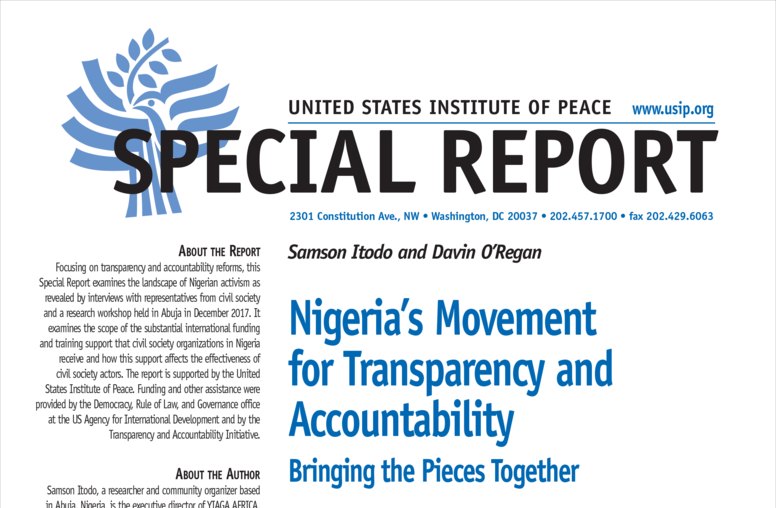
Nigeria’s Movement for Transparency and Accountability
Since the demise of its military dictatorship in the late 1990s, Nigeria has made remarkable democratic progress. Still, widespread corruption bedevils the country—which in many respects presents its biggest policy challenge and its biggest threat to stability and development. Drawing on a workshop held in Abuja as well as on...
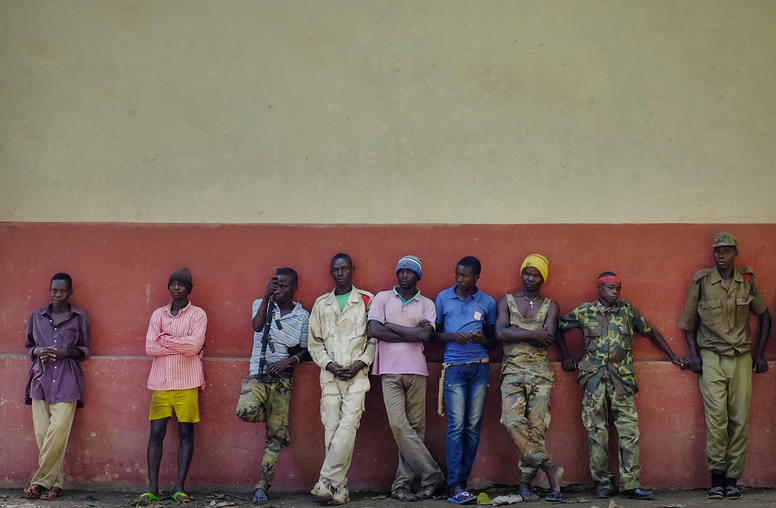
The “Green Diamond”: Coffee and Conflict in the Central African Republic
Coffee production is a fairly small part of the Central African Republic's economy, but it plays an outsize role in the country's ongoing conflict. Armed militia groups that hold sway over the country's main coffee growing regions and trade routes reap millions of dollars in funding to sustain their operations. This report discusses how understanding the political economy of conflict in the Central African Republic can help national and international stakeholders break the cycle of violence.
Won’t You Be My Neighbor: Syria, Iraq and the Changing Strategic Context in the Middle East
Overall, Syria has marginally benefited from the war in Iraq at both the regional and international levels. After watching the U.S. military unseat the Baathist regime next door in 2003 with unprecedented speed, it looked to many observers—including some in Damascus—as if Syria would be next in line.
Keeping an Eye on an Unruly Neighbor: Chinese Views of Economic Reform and Stability in North Korea
What is the nature of internal Chinese debate regarding North Korea? In the event of instability in the Korean peninsula, how would Beijing respond? Drawing on discussions with North Korea specialists during a Center for Strategic and International Studies-USIP delegation visit to the People's Republic of China, this report explores these and related issues.
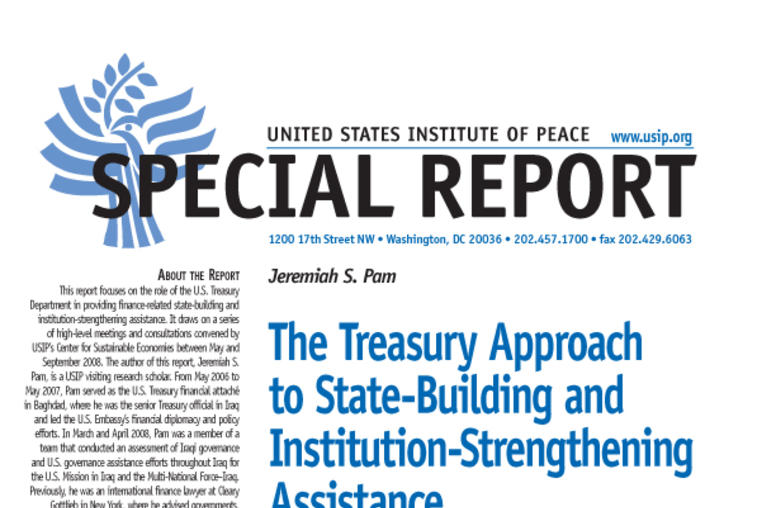
The Treasury Approach to State-Building and Institution-Strengthening Assistance: Experience in Iraq and Broader Implications
Drawing on a series of consultations convened by USIP's Center for Sustainable Economies, author Jeremiah S. Pam focuses on the role of the U.S. Treasury Department in finance-related state-building and institution-strenthening. Specifically, the report identifies key dynamics in the field and discusses aiding local institutions, providing technical assistance, improving interagency coordination and enabling local champions for such efforts.
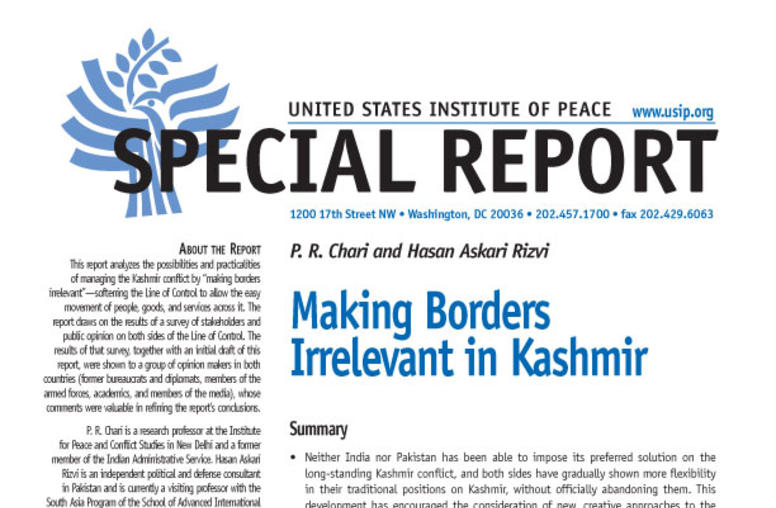
Making Borders Irrelevant in Kashmir
In this report, a duo of experts from India and Pakistan explore the prospect of "making borders irrelevant" in Kashmir through increased movement of people, goods and services across the "Line of Control." The findings draw on the results of a survey of stakeholders and public opinion on both sides.
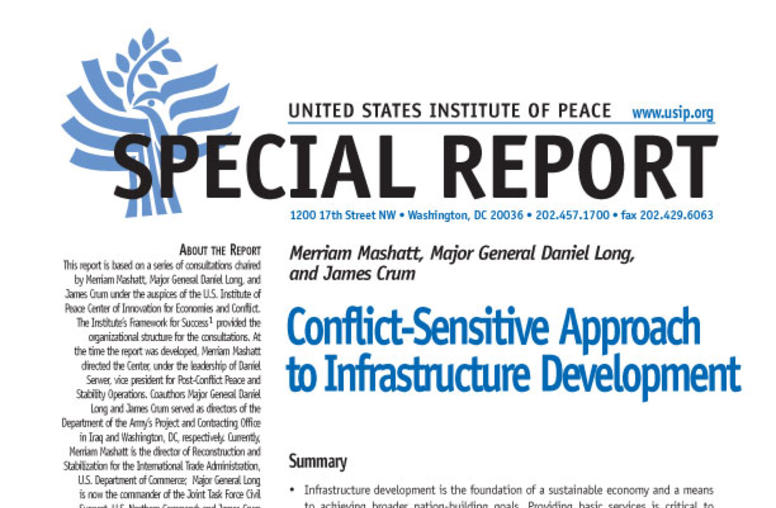
Conflict-Sensitive Approach to Infrastructure Development
What is the nexus between conflict analysis and building infrastructure? What roles can new and upgraded buildings, highways, and the like play in winning the "battle for hearts and minds?" How can the U.S. government streamline processes aimed to facilitate infrastructure development in conflict zones?
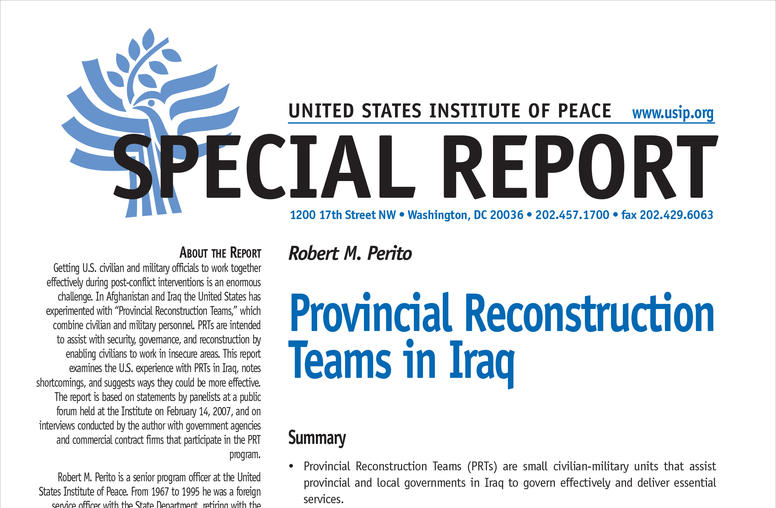
Provincial Reconstruction Teams in Iraq
In January 2007, President Bush announced that the United States would double the number of Provincial Reconstruction Teams (PRTs), small civilian-military units that assist provincial and local governments to govern effectively and deliver essential services, as part of his plan for a "New Way Forward" in Iraq. This report examines the U.S. experience with PRTs in Iraq, notes shortcomings, and suggests ways they could be more effective.
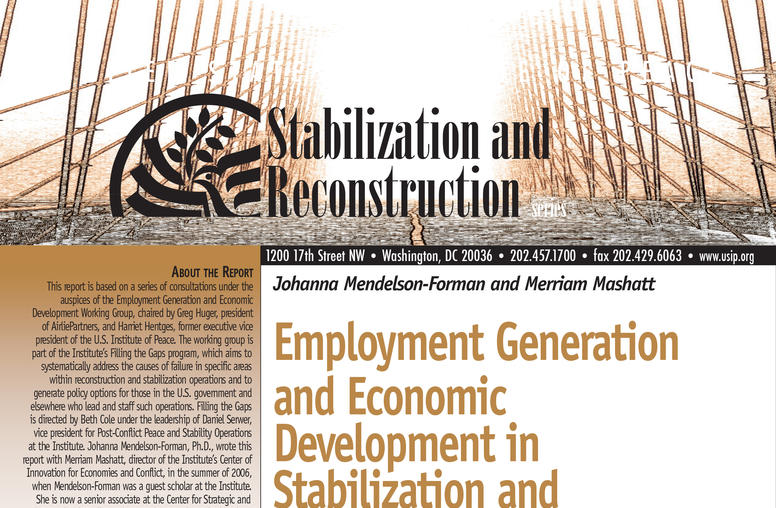
Employment Generation and Economic Development in Stabilization and Reconstruction Operations
It seems logical that improving the lives of those who have suffered from conflict would include a program to generate economic well-being in the immediate period after hostilities subside. Yet livelihood creation, the root of potential economic success and security, has often become a secondary objective in the transformation from war to peace.
The Palestinian Reform Agenda
The Oslo Accords reached by the Palestine Liberation Organization (PLO) and Israel in 1993-95 ushered into existence the Palestinian Authority and inspired efforts to build autonomous structures for Palestinian self-rule. Since the earliest days of the Palestinian Authority, a varied group of Palestinians has sought to lay the practical foundation for Palestinian statehood through the construction of strong institutions with clear (and generally liberal) legal bases.